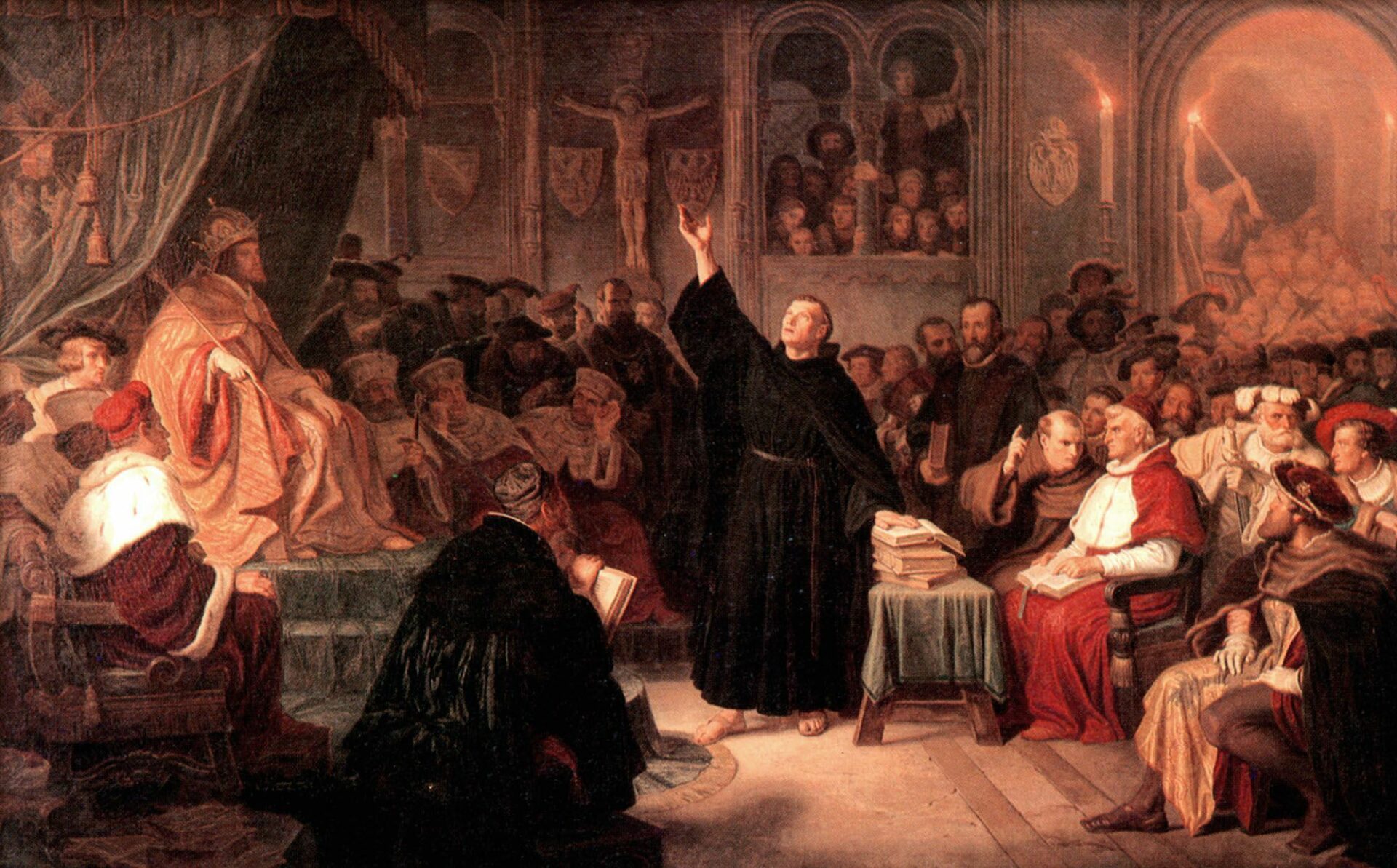In 1517 Martin Luther touched off a revolution when he drew up Ninety-five Theses for debate. In them he questioned church practices, specifically the practice of granting indulgences—popularly believed to grant forgiveness of sin and remission of punishment. Luther himself had come to believe in the primacy of faith over good works and in the priesthood of individual believers.
Luther’s challenge produced a storm within the church that eventually drove him to reject some Catholic doctrine and organize his own church. Excommunicated in 1521, Luther became a national hero under the protection of the elector of Saxony, and soon other German princes joined the revolt.
Luther owed his success partly to religious sentiment and partly to political issues. Luther’s doctrine of justification by faith had widespread appeal. Moreover, many Catholics sympathized with the need for reform.
Although the Holy Roman emperor Charles V fought Protestantism, he was distracted by the many other concerns of his huge empire. In 1555 he was obliged to accept the Peace of Augsburg that recognized the right of each prince to determine whether his lands would be Catholic or Lutheran. The Peace did not, however, recognize any other Protestant groups.
Ulrich Zwingli led a quiet reform in Switzerland. He reinforced fundamental principles of Protestantism, especially the emphasis on the simplicity of primitive Christianity and rejection of Catholic liturgy. John Calvin shaped the Protestant movement as a way of life and was instrumental in its spread across Europe to France, Scotland, and England.
The English Reformation was carried out by royal authority. By the Act of Supremacy in 1534, Henry VIII became head of the English church. He retained Catholic doctrine and ritual but ended the authority of Rome. Henry enjoyed the support of the middle class in his action. His seizure of monastic lands and dissolution of monasteries fostered an economic and social revolution.
Although beliefs differed among Protestants, they shared a repudiation of Rome, relaxation of ritual and organization, a limit on the number of sacraments, and their rebel origins.
Calvinists rejected the Catholic emphasis on salvation and emphasized instead the belief that only a very few had been chosen by God to be saved. Although Calvinism was not originally democratic, its preaching set the individual above the state and may have contributed to modern democratic thought.
At first the Catholic church responded to the Protestant challenge by trying to suppress the revolt. Then it rallied to reform itself from within, an effort known today as the Catholic Reformation. Habsburg rulers in Spain and Germany actively led the Catholic Reformation. The Jesuits, founded by Ignatius Loyola and organized on military discipline, won back some lands from Protestantism and made new converts overseas.
The Council of Trent, convened in 1545, brought about reform but also reaffirmed Catholic doctrine, ending the hope of some Catholics for compromise with Protestants. The Catholic Reformation succeeded in stemming the tide of Protestantism. Thus, by 1580 the lines of Catholic and Protestant lands in Europe were drawn.
Interpretations vary as to the causal relationship between Protestantism and the rise of modern Western democracy. Most historians agree that Protestant moral ideas strengthened the commercial and industrial middle class and led people to reexamine old ideas and institutions.
In 1904, German sociologist Max Weber advanced the much-debated thesis that Protestantism, especially Calvinism, established precepts and values that created a society predisposed to hard work, an essential of modern economic life. A more widely accepted generalization is that the Protestant and Catholic Reformations, along with other currents, were important elements in the rise of modern nationalism.

